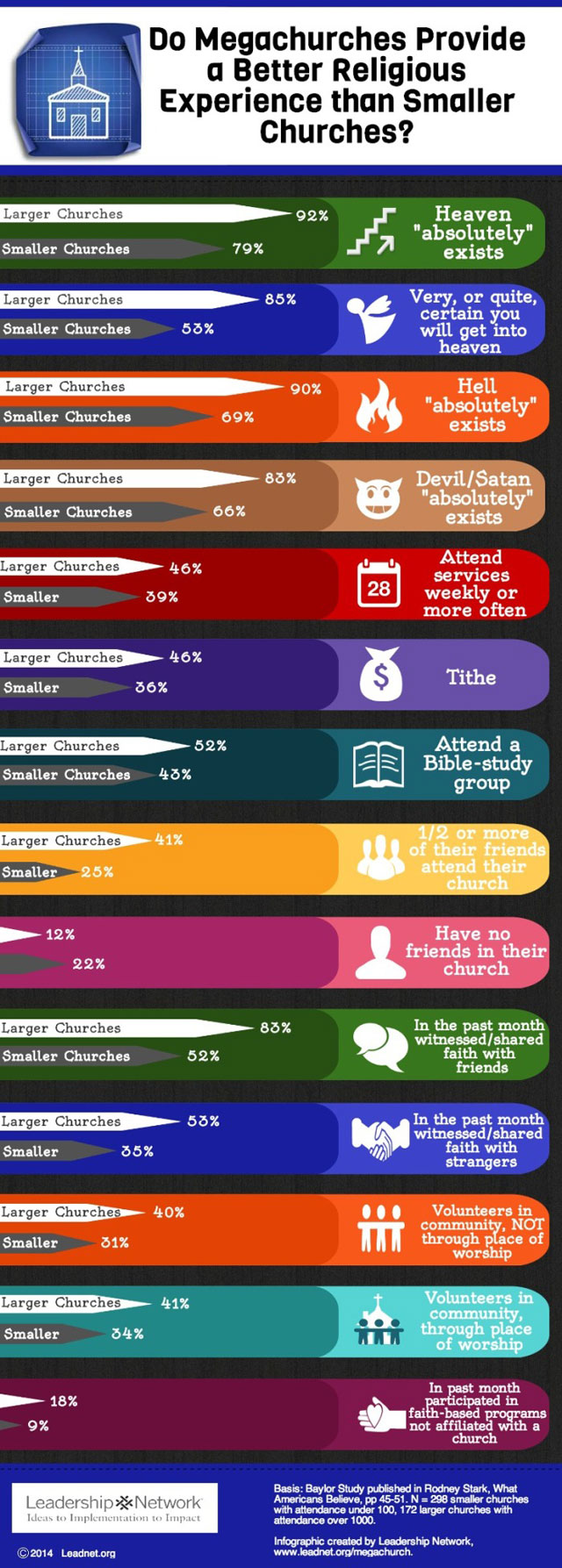

I love small churches. I love medium-sized churches. And I love large churches and “megachurches” (typically defined as an evangelical congregation with 2,000 or more weekend service attenders). I also agree with a principle shared by Bailey Smith who once said, “There are no large churches. All churches are small, some are just smaller than others when compared to the surrounding lost population.”
I’ve pastored churches of 30 and I’ve served as a staff pastor at a church that averaged about 22,000 attenders at the time. In many ways, the largest of them was also the smallest—the most capable of shaping and nurturing my soul. For whatever reason, church size is a very, very sensitive topic. Within the church, everyone seems to favor whatever size the church they’re part of represents. Some view small churches as ineffective and unwelcoming. Others view large churches as doctrinally weak or merely as corporate structures that prefer making dollars over disciples.
Why all the sensitivity? I think it’s social. We’re all a little protective of our identity, especially when we feel that someone is judging and assessing us as more or less worthy by secondary measures such as church size.
At Grace Hills, I’m continually challenging us to have a growth mindset and to make sure that we are focused on growing multi-dimensionally. As a purpose driven church, we hope to grow …
a. larger through evangelism,
b. warmer through fellowship,
c. deeper through discipleship,
d. broader through ministry, and
e. stronger through worship.
Does a church have to compromise its theology to grow larger? Absolutely not! Have some? Sure. And have some small churches done the very same thing to make a relatively small handful of tithers happier with the status quo? Definitely. It happens, and when it does, it’s not good. What bothers me is the stereotyping of all large and growing churches as somehow diminishing either the quality or depth of their ministries. Research simply suggests a very different picture.
Consider the findings of thorough research conducted by the Leadership Network (who happen to be experts in the field of data and research). Glance at this graphic:
Graphic courtesy of Leadership Network
Some of the most popular stereotypes of large churches simply don’t hold water. In general, megachurch attenders tend to be more informed about doctrine, more intentional about serving others and more involved in missions. They tithe more, attend more and seem to have more healthy, close relationships. Again, this doesn’t mean that small churches are bad or ineffective. It merely suggests that our anti-growth, anti-large-church mindset may not only be misinformed, but harmful to the cause of the gospel.


